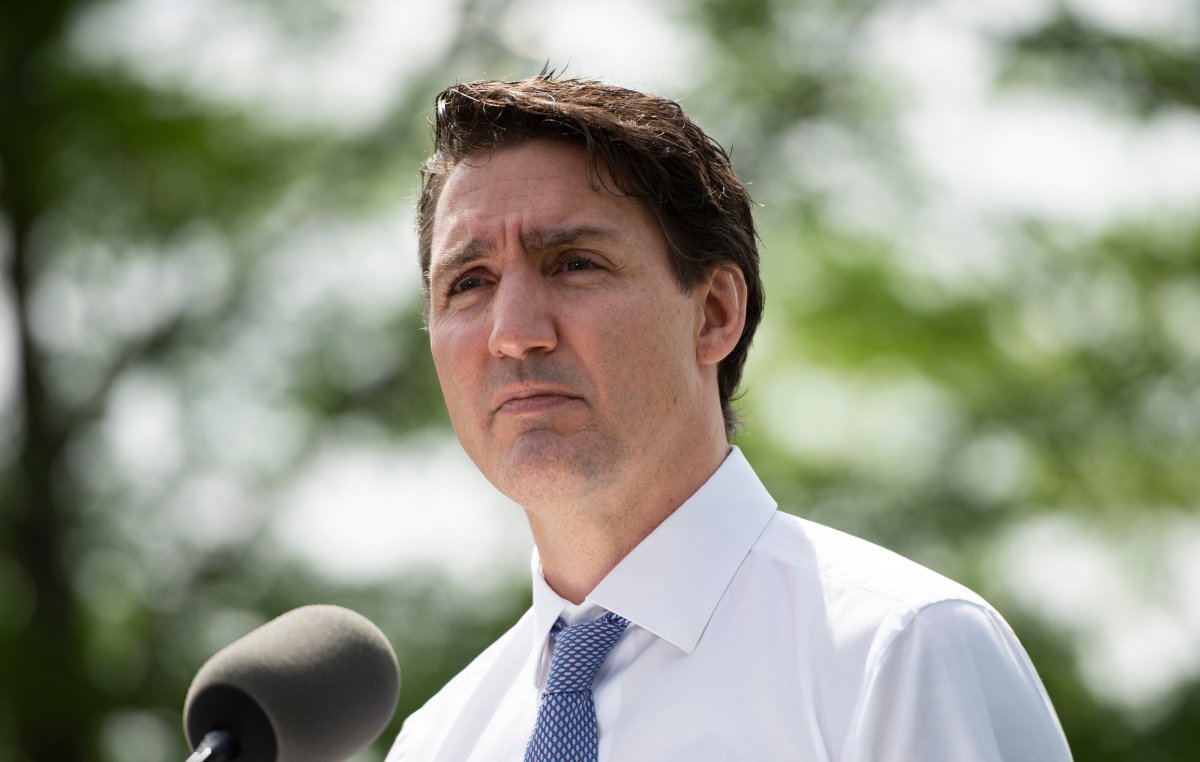Federal government advertising campaigns millions of Canadians are seeing this spring and summer urging them to get vaccinated have their origins in federal government polling done early last winter, as the country was grappling with the second wave of COVID-19 infections, according to documents obtained by Global News.

“A strong communications approach is key in supporting the rollout and administration of vaccines, and addressing COVID fatigue,” Trudeau told the premiers during their February 4 teleconference meeting, according to prepared remarks given to the prime minister for that meeting. “We need clear public messaging that encourages Canadians to respect public health measures, get tested and isolate if positive.”
The federal government by February had identified that the weariness and frustration many Canadians were expressing, even then with public health measures could be a barrier to defeating the virus.
“Based on public opinion research, it is becoming clear that COVID-19 fatigue is setting in,” the briefing package prepared for Trudeau said. “In the most recent survey, a majority of respondents (63 per cent) felt that coping with the pandemic through the winter will be harder than it was in the spring and 32 per cent of respondents felt it was unrealistic for the government to expect people will not gather indoors during the winter.
“In addition, 52 per cent of Canadians reported visiting with friends and family indoors in the last two weeks, signalling that while many Canadians are not gathering in large groups, a number of Canadians are continuing to see friends and family in small numbers.”
The February 4 First Ministers Meeting was the 26th such meeting since March 13, 2020. For most of the first year of the pandemic, those calls took place once every two weeks. Recently, the prime minister and the premiers agreed to reduce the frequency of those calls to once every three weeks.
Trudeau’s prepared remarks, along with briefing notes on individual issues, data on provincial rapid testing, and statistics on how each province and territory was then handling COVID-19 cases and vaccine rollout were included in a 61-page release of records provided to by Global News, through the federal Access To Information Act (ATI).
Government censors have blacked out several sections and pages. Censors cite that part of the ATI Act which given them the option of preventing the release of information which “could reasonably be expected to injurious to federal-provincial affairs” and another section which allows the prevention of the release of information that is considered advice to a minister on a course of action.

But despite the redactions, the briefing package provides a glimpse at the priorities and strategies of the federal government in mid-winter to bolster its “Team Canada” approach to managing the pandemic, rolling out vaccines and taking its first steps in dealing with the freshly minted Biden administration.
At the time of the meeting, Canada’s seven-day average for new COVID-19 cases was 4,570 a day. The Public Health Agency of Canada said on Friday that average is now down to less than 600 new cases a day.
- What is a halal mortgage? How interest-free home financing works in Canada
- Ontario doctors offer solutions to help address shortage of family physicians
- Capital gains changes are ‘really fair,’ Freeland says, as doctors cry foul
- Budget 2024 failed to spark ‘political reboot’ for Liberals, polling suggests
And while public health authorities in February were worried about what was then known as the UK variant and the South African variant — since renamed by the World Health Organization as the Alpha variant and the Beta variant, the current variant of greatest concern, the Delta variant first discovered in India, had not yet become part of the global public health lexicon.
Nonetheless, the federal government had just imposed on January 20, new border control measures including the requirement that inbound air travellers stay at so-called “government quarantine hotels” for up to three days while waiting the results of a PCR COVID-19 test. Those restrictions, announced January 20, largely remain in place. The only change occurs Monday, when fully vaccinated Canadian travellers who meet certain conditions can skip the mandatory 14-day quarantine.
The briefing package acknowledges that while premiers, too, were interested in those three topics, the premiers were also particularly keen to press the federal government to increase the amount of cash Ottawa gives the provinces each year for health care funding.
Trudeau was provided with information about a variety of deputy minister-level committees and studies that were underway then to deal with the premiers request.
The premiers, at the time, would have known that the Trudeau government was busy assembling the 2021 budget, and would have been pushing to see the Canada Health Transfer increase in that budget. As it turned out though, when the budget was tabled in April, Finance Minister Chrystia Freeland did not increase health transfers and had little to say about potential future increases.
Health care funding continues to be a source of federal-provincial friction and could be a potential issue in any federal election campaign this year or next.
The prime minister and the premiers, though, appear to have shared the same concerns in early February when it came to U.S.-Canada relations. Having just transitioned from the Trump administration to the Biden administration, Ottawa and the provinces were concerned that Biden would be as protectionist as Trump and shut out Canadian firms looking for U.S. government contracts.
Trudeau, by the time of that February meeting, had already had separate calls with Biden and with Vice-President Kamala Harris. Trudeau told the premiers that while Biden “did not intend to target Canada” with any ‘Buy America’ provisions, “we should recognize the very broad support in the U.S. for Buy America policies.”





Comments